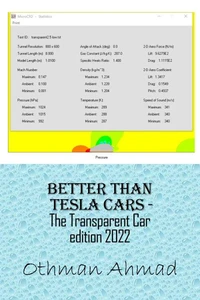This book explains how Subsidies destroy nations by reducing their domestic output called Gross Domestic Product (GDP). It defines what subsidies are as partial payment for specific goods and services by the government. Full payment of 100% is not considered as subsidy but gifts. Subsidies make government expenditures more biased towards the rich, encourages waste and discourages production which led to other evils such as brain drain and the reduction of the gross domestic product(GDP) of the nations, weakening the nation as a result.
Subsidies and their impact to the economy of the nations are explained using articles written in journals and webpages from world organisations, such as United Nations, World Bank, International Monetary Fund, World Trade Organisation and universities. Both analysis using market forces and planned economy are considered. Most researchers are targeted towards poverty eradication but some impacts on GDP are pointed out from these research results.
Examples of successful removal of subsidies in Iran, Sri Lanka and Indonesia are examined based on data from researchers. They were successful in reducing GINI (Income Gap) if cash handouts are given, otherwise there would be strong rejections by the residents of the nations. Singapore is analysed with respect to removal of subsidies. Compared to its neighbour, Malaysia, Singapore has high a GDP per capita without much subsidy but Malaysia still has low GDP per capita despite having immense natural resources but give out subsidies instead of cash handouts.
Singapore used to be part of Malaysia and has similar GDP per capita which was in the poor category as well when it was part of Malaysia. Singapore also shows that without unemployment benefits, it has high GINI. Singapore versus Malaysia comparison is also used to ponder quality of living instead of just standard of living. Quality of living is defined by more detailed analysis of the living critieria such as as houses, electronic devices and cars.
Comparing just the number of cars per capita is not a fair comparison when the quality of cars in Singpore are much higher. It can be deduced that the quality of living in Singapore is higher in Malaysia despite its high cost of living, leading to more brain drain from Malaysia to Singapore. Religion should also not favour subsidy because of its unfairness and this shows for some views of Christians and Buddhists.
Islam does not condemn subsidies which shows in the adoption of huge subsidies among Muslim nations. However, Quran does not allow any subsidy, only cash handouts. This is proof that official Islam has deviated from the Quran.
This book explains how Subsidies destroy nations by reducing their domestic output called Gross Domestic Product (GDP). It defines what subsidies are as partial payment for specific goods and services by the government. Full payment of 100% is not considered as subsidy but gifts. Subsidies make government expenditures more biased towards the rich, encourages waste and discourages production which led to other evils such as brain drain and the reduction of the gross domestic product(GDP) of the nations, weakening the nation as a result.
Subsidies and their impact to the economy of the nations are explained using articles written in journals and webpages from world organisations, such as United Nations, World Bank, International Monetary Fund, World Trade Organisation and universities. Both analysis using market forces and planned economy are considered. Most researchers are targeted towards poverty eradication but some impacts on GDP are pointed out from these research results.
Examples of successful removal of subsidies in Iran, Sri Lanka and Indonesia are examined based on data from researchers. They were successful in reducing GINI (Income Gap) if cash handouts are given, otherwise there would be strong rejections by the residents of the nations. Singapore is analysed with respect to removal of subsidies. Compared to its neighbour, Malaysia, Singapore has high a GDP per capita without much subsidy but Malaysia still has low GDP per capita despite having immense natural resources but give out subsidies instead of cash handouts.
Singapore used to be part of Malaysia and has similar GDP per capita which was in the poor category as well when it was part of Malaysia. Singapore also shows that without unemployment benefits, it has high GINI. Singapore versus Malaysia comparison is also used to ponder quality of living instead of just standard of living. Quality of living is defined by more detailed analysis of the living critieria such as as houses, electronic devices and cars.
Comparing just the number of cars per capita is not a fair comparison when the quality of cars in Singpore are much higher. It can be deduced that the quality of living in Singapore is higher in Malaysia despite its high cost of living, leading to more brain drain from Malaysia to Singapore. Religion should also not favour subsidy because of its unfairness and this shows for some views of Christians and Buddhists.
Islam does not condemn subsidies which shows in the adoption of huge subsidies among Muslim nations. However, Quran does not allow any subsidy, only cash handouts. This is proof that official Islam has deviated from the Quran.

 , qui est-ce ?
, qui est-ce ?